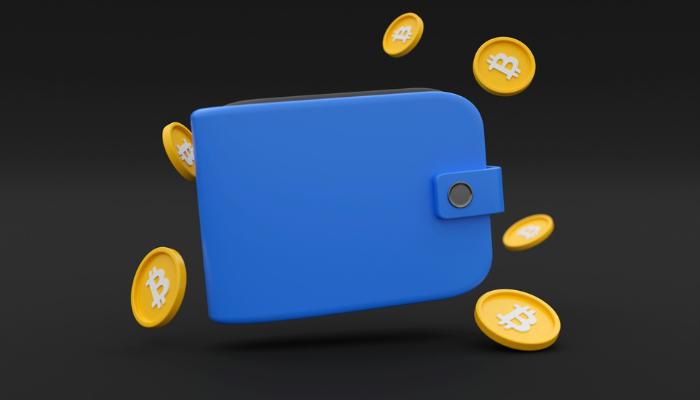Cryptocurrency Wallets to Store Bitcoins and Altcoins Safely
In our increasingly digital world, cryptocurrencies have revolutionized the concept of money, providing individuals with unprecedented financial autonomy. However, with this newfound freedom comes the critical responsibility of safeguarding your assets against an array of cyber threats.
Advertisements
In this comprehensive guide, we’ll navigate the intricate landscape of securing your bitcoins and altcoins through the careful selection and management of cryptocurrency wallets.
Advertisements
From exploring the diverse types of wallets available to implementing stringent security protocols, we’ll provide you with the insights and tools necessary to fortify your digital wealth effectively against potential risks and vulnerabilities.
Creating a Secure Cryptocurrency Wallet
In an era dominated by digital transactions, safeguarding your assets becomes paramount, particularly in the realm of cryptocurrencies.
Advertisements
Establishing a secure cryptocurrency wallet stands as the foundational stride towards safeguarding your bitcoins and altcoins. Let’s delve into the strategies to accomplish this task with efficacy and trustworthiness.
Tips for Storing Bitcoins and Altcoins Securely

Storing your cryptocurrencies securely is essential to protect them from cyber threats. Here are some practical tips to ensure the security of your bitcoins and altcoins.
- Use reputable and recognized cryptocurrency wallets in the market.
- Keep your private keys secret and never share them with anyone.
- Consider using a hardware wallet for cold storage of your cryptocurrencies.
- Keep your wallet software always updated to prevent security vulnerabilities.
- Use two-factor authentication (2FA) whenever possible to add an extra layer of security to your account.
- Avoid accessing your cryptocurrency wallet on public or unsecured Wi-Fi networks.
- Regularly back up your wallets and store backup copies in secure locations, such as encrypted external storage devices or cloud services.
Protecting Your Cryptocurrency Wallet from Hackers
Hackers are constantly looking for ways to access your cryptocurrencies, but there are measures you can take to protect your wallet from these threats.
- Use strong and unique passwords for your cryptocurrency wallet accounts.
- Enable two-factor authentication (2FA) to add an extra layer of security.
- Keep your wallet software and operating system always updated to protect against known vulnerabilities.
- Avoid clicking on suspicious links or downloading files from untrusted sources that may contain malware.
- Consider using a VPN when accessing your cryptocurrency wallet on public or unsecured networks.
- Regularly monitor your cryptocurrency wallet account for suspicious activity and take immediate action if you detect anything unusual.
How to Backup and Recover Your Cryptocurrency Wallet
Backing up your cryptocurrency wallet is crucial to ensure that you don’t lose access to your funds in case of device failure or password loss. Here’s a step-by-step guide on how to backup and recover your wallet safely.
- Locate the backup option in your cryptocurrency wallet and follow the provided instructions.
- Choose a secure location to store your backup copy, such as an external storage device or an encrypted cloud platform.
- Ensure that your backup copy is password-protected and encrypted to prevent unauthorized access.
- Regularly backup your wallet and update it whenever you make significant changes to your configuration or balance.
- To recover your wallet, follow the instructions provided by your cryptocurrency wallet and use the backup copy you created earlier.
Cold Storage vs. Hot Storage
When it comes to storing your cryptocurrencies, you have two main options: cold storage and hot storage. Let’s explore the differences between them and the advantages and disadvantages of each.
Cold Storage:
Cold storage involves storing your private keys offline, meaning they never come into contact with the internet. This provides an extremely high level of security, as it prevents hackers from accessing your keys through cyber attacks.
Advantages:
- High security against hackers and cyber attacks.
- Ideal for storing large amounts of cryptocurrencies long-term.
- Protection against security breaches on exchanges or online platforms.
Disadvantages:
- Less convenient for quickly accessing your cryptocurrencies.
- May be more complicated to set up and use for beginners.
Hot Storage:
Hot storage, on the other hand, involves storing your private keys online, usually on an exchange or online wallet. While it’s more convenient for quickly accessing your cryptocurrencies, it also carries a higher risk due to exposure to the internet and potential cyber attacks.
Advantages:
- Greater convenience for quickly accessing your cryptocurrencies.
- Easier to set up and use for beginners.
Disadvantages:
- Lower security compared to cold storage.
- Susceptible to cyber attacks and hacks on exchanges or online wallets.
Choosing the Best Cryptocurrency Wallet
With so many cryptocurrency wallets available, it can be difficult to know which one is best for you. Here are some important considerations to keep in mind when choosing the best wallet for your needs.
- Wallet Type: Decide whether you prefer a hardware, software, paper, or online wallet based on your security and convenience preferences.
- Security: Prioritize wallets that offer robust security features, such as two-factor authentication (2FA) and end-to-end encryption.
- Usability: Choose a wallet that is easy to use and has an intuitive interface, especially if you’re a beginner in cryptocurrencies.
- Compatibility: Ensure that the wallet is compatible with the cryptocurrencies you plan to store and supports additional features such as staking or DeFi.
When researching and comparing different cryptocurrency wallets, take these factors into consideration to find the best option for your specific needs.
Security Features for Cryptocurrency Wallets
When it comes to securing your cryptocurrencies, it’s important to choose a wallet that offers robust security features to protect your assets from hackers and cyber threats. Here are some common security features you should look for when choosing a cryptocurrency wallet.
- Two-Factor Authentication (2FA): Add an extra layer of security to your account by requiring an additional verification code when logging in or performing transactions.
- Private Key Backup: Regularly back up your private keys and store them in a secure location to ensure that you can regain access to your funds in case of loss or theft of the device.
- End-to-End Encryption: Protect your transactions and personal data with robust encryption that prevents third parties from intercepting or tampering with your information.
- Full Control of Private Keys: Choose a wallet that allows you to have full control over your private keys, ensuring that you are the sole owner and have access to your funds.
- Regular Updates: Make sure your wallet is always updated with the latest security patches and software updates to protect against known vulnerabilities.
By choosing a cryptocurrency wallet with these security features, you can protect your private keys and access passwords from unauthorized access and ensure the security of your cryptocurrency assets.
How to Protect Your Private Keys and Access Passwords
Your private keys and access passwords are essential to protecting your cryptocurrencies from unauthorized access. Here are some important tips for protecting your private keys and access passwords.
- Keep your private keys secret and never share them with anyone.
- Use strong and unique passwords for your cryptocurrency wallet accounts and never reuse them on other online services.
- Enable two-factor authentication (2FA) to add an extra layer of security to your account.
- Avoid storing your private keys and access passwords on devices connected to the internet or in insecure locations.
- Consider using a reputable password manager to securely store and protect your access passwords.
By following these best practices, you can protect your private keys and access passwords from unauthorized access and ensure the security of your cryptocurrency assets.
Risks of Storing Cryptocurrencies
While cryptocurrencies offer many benefits, they also present significant security risks that investors need to be aware of. Here are some of the main security risks of storing cryptocurrencies.
- Exchange Hacks: Cryptocurrency exchanges are constantly under attack from hackers aiming to steal users’ funds.
- Malware and Phishing: Users can fall victim to malware or phishing attacks aimed at stealing their private keys and access passwords.
- Loss of Private Keys: If you lose your private keys or are unable to access them, you may permanently lose access to your funds.
- Regulatory Risks: Changes in laws and government regulations can affect the security and legality of cryptocurrencies in certain jurisdictions.
- Price Volatility: Cryptocurrency prices are highly volatile and can fluctuate dramatically in short periods of time, resulting in significant losses for investors.
To mitigate these risks, it’s important to take proactive measures to protect your cryptocurrencies and be aware of the risks involved in storing and investing in cryptocurrencies.
Storing your cryptocurrencies securely is essential to protect your assets from cyber threats and ensure your long-term security.
By following best security practices, choosing a reliable wallet, and being aware of the risks involved, you can enjoy the benefits of cryptocurrencies with peace of mind.
Always remember to keep your private keys secret, regularly back up your wallets, and take steps to protect your personal information from unauthorized access. With proper care and diligence, you can securely store and protect your cryptocurrencies.





